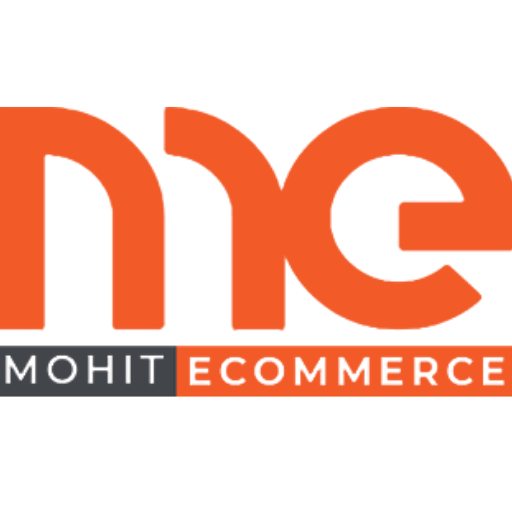Tap into the vast potential of ecommerce business to maximize online profit. In this digital world, leverage the power of online transactions, cutting-edge marketing techniques, and personalized customer interactions. Seamlessly blend these elements to stand out in the online market, driving growth and success. With a focus on customer satisfaction and strategic planning, you can navigate challenges like intense competition and cybersecurity threats. Explore different ecommerce models, understand payment gateways, and embrace future trends to stay ahead of the curve. The world of ecommerce offers endless opportunities for profit and growth – immerse yourself in this dynamic landscape to unveil your full potential.
Key Takeaways
- Reach global audience with digital products.
- Lower overhead costs than traditional stores.
- Implement effective marketing strategies.
- Offer diverse payment options for convenience.
- Utilize data-driven decisions for profitability.
What Is Ecommerce Business?
Embracing the digital age, ecommerce business has revolutionized the way people buy and sell goods and services online. In today’s fast-paced world, online business has become a powerful tool for entrepreneurs looking to reach a global audience and maximize their profits. Ecommerce platforms provide a convenient way to showcase and sell digital products, reaching customers beyond geographical boundaries. Online sales have soared as consumers increasingly prefer the ease and accessibility of shopping from the comfort of their own homes.
Understanding How Ecommerce Business Works

To truly comprehend the inner workings of an ecommerce business, you must explore into the intricate web of online transactions, customer interactions, and digital marketing strategies that drive its success.
Let’s dig into the core components that make an ecommerce business tick:
- Online Transactions: At the heart of an e-commerce business are seamless online transactions. From secure payment gateways to efficient order processing systems, ensuring a smooth transaction process is essential for customer satisfaction.
- Customer Interactions: Building strong relationships with customers is key. This involves providing exceptional customer service, personalized communication, and addressing queries promptly to enhance customer satisfaction and loyalty.
- Digital Marketing: Leveraging digital marketing tools such as social media, SEO, and email campaigns is crucial for reaching a wider audience and driving traffic to your online store. Crafting compelling content and engaging visuals can significantly impact your e-commerce business’s visibility and success.
Understanding how these elements intertwine is important for running a successful e-commerce business that not only attracts customers but also retains them for the long term.
Benefits of Starting an Ecommerce Business

Now that you have gained insights into how the intricate workings of an ecommerce business come together, let’s shift our focus to the undeniable advantages that come with starting one. Starting an ecommerce business opens up a world of opportunities to generate online profit and build a successful venture. One of the key benefits is the ability to reach a global audience without the limitations of a physical store. Operating online, you can cater to customers from around the world, increasing your sales potential greatly. Furthermore, the overhead costs of running an ecommerce business are generally lower than those of a traditional brick-and-mortar store, allowing you to allocate more resources to marketing and product development. In addition, the flexibility and scalability of ecommerce platforms enable you to adapt quickly to market trends and expand your business as needed. Embracing the digital landscape through starting an ecommerce business can lead to increased profitability and sustainable growth in the long run.
Challenges You Might Face in the Ecommerce Business
Facing the dynamic world of ecommerce brings forth a multitude of challenges that require keen navigation and strategic planning. In the domain of ecommerce business, you may encounter hurdles that test your resilience and creativity. Here are three significant challenges you might face in the ecommerce business:
- Intense Competition: The online marketplace is saturated with businesses vying for consumer attention. Standing out and attracting customers amidst this competition can be a challenging task.
- Shipping and Logistics: Guaranteeing timely delivery of products while managing costs can be a logistical puzzle. Efficient shipping processes are essential for customer satisfaction and retention.
- Cybersecurity Threats: With the rise of online transactions, the risk of cyber threats such as data breaches and hacking attempts increases. Safeguarding sensitive customer information is vital for maintaining trust and credibility.
Successfully overcoming these challenges in the ecommerce landscape requires strategic planning, innovation, and a customer-focused approach to secure sustainable growth and profitability.
Different Types of Ecommerce Models Explained

Amidst the ever-evolving landscape of ecommerce, a diverse array of business models exists to cater to varying needs and preferences of both consumers and entrepreneurs. Understanding the different types of ecommerce models is essential for aligning your business objectives with the most suitable approach in the ecommerce industry.
- Business-to-Consumer (B2C): This model involves businesses selling products or services directly to consumers. It’s ideal for reaching a wide audience and establishing a strong online presence.
- Business-to-Business (B2B): In this model, transactions occur between businesses. It focuses on meeting the specific needs of other businesses, often involving bulk orders or specialized products.
- Consumer-to-Consumer (C2C): C2C platforms enable individuals to sell products or services to other individuals. It fosters a sense of community and allows for peer-to-peer transactions.
- Consumer-to-Business (C2B): This model involves individuals offering products or services to businesses. It’s great for freelancers, influencers, or experts looking to provide services to companies.
The Role of Technology in Ecommerce Business Growth

Exploring the ever-changing world of ecommerce demands a keen understanding of how technology propels business growth. When it comes to the role of technology in ecommerce business growth, consider the following:
- Enhanced Customer Experience: Leveraging technology allows for personalized shopping experiences, efficient customer service, and seamless transactions, leading to increased customer satisfaction and loyalty.
- Data-Driven Decision Making: Technology enables businesses to collect and analyze vast amounts of data, providing valuable insights into consumer behavior, market trends, and operational performance, which can inform strategic decisions and drive growth.
- Scalability and Efficiency: Implementing the right technological tools and systems can streamline operations, automate processes, and support scalability, enabling businesses to handle increased demand, expand their reach, and drive profitability in a cost-effective manner.
Key Components of a Successful Ecommerce Business
Regularly assessing and optimizing the key elements of your ecommerce business is vital for sustained success in the ever-changing digital marketplace. To thrive in the competitive landscape of online businesses, focusing on your ecommerce platform, customer experience, and marketing strategies is essential. Your ecommerce platform serves as the foundation of your online presence. Make sure it is user-friendly, secure, and offers seamless transactions to enhance customer satisfaction. Invest in building a personalized customer experience by tailoring product recommendations, providing outstanding customer support, and streamlining the purchasing process. Implement innovative marketing strategies to drive traffic to your site and convert visitors into devoted customers. Utilize social media, email campaigns, and SEO techniques to reach your target audience effectively. Prioritizing these key elements, you can create a successful ecommerce business that stands out in the digital domain.
How to Build Your Ecommerce Business Strategy?

In today’s fast-paced digital landscape, crafting a robust and customer-centric ecommerce business strategy is paramount to successfully maneuvering the competitive online marketplace. To build a winning strategy, consider the following:
- Understand Customer Behavior: Dive deep into analyzing your target audience’s preferences, purchasing habits, and pain points to tailor your offerings effectively.
- Optimize Ecommerce Marketing: Implement data-driven marketing strategies to reach your audience at the right time with the right message, enhancing brand visibility and driving sales.
- Enhance User Experience: Focus on providing a seamless shopping experience across all touchpoints, from website navigation to checkout, to increase customer satisfaction and loyalty.
5 Essential Steps to Start an Ecommerce Business

Ready to kickstart your ecommerce venture? Begin immersing yourself in market research and validation, laying the foundation with a solid business plan, and mastering product sourcing and inventory management. Next, focus on selecting the ideal selling platform for your products and crafting innovative marketing and promotion strategies to drive success in the competitive online landscape.
1. Market Research and Validation
Conducting thorough market research and validation is an essential foundation for launching a successful ecommerce business. To guarantee your online venture is on the right track, consider the following key steps:
- Understanding Your Target Audience: Dive deep into market research to identify your ideal customer demographics, preferences, and behaviors. This will help tailor your products or services to meet their specific needs, increasing the likelihood of generating online profit.
- Competitor Analysis: Analyze your competitors to gain insights into what works well in the market and where there may be gaps you can fill. This information will guide you in developing a unique selling proposition that sets your ecommerce business apart.
- Validation through Testing: Before fully committing resources, conduct small-scale tests or pilot programs to validate demand for your offerings. This iterative approach allows you to refine your strategy based on real-world feedback, optimizing your chances for success in the competitive ecommerce landscape.
2. Business Planning and Setup
When embarking on the journey of launching an ecommerce business, creating a detailed business plan and establishing the necessary foundations are crucial steps towards online success. A well-thought-out business plan serves as a roadmap, outlining your goals, target market, marketing strategies, financial projections, and more. It helps you stay focused and organized as you navigate the competitive landscape of ecommerce.
In the domain of business planning, consider aspects such as your unique selling proposition, competitive analysis, and pricing strategy to position your ecommerce business for profitability. As you progress to the setup phase, concentrate on building a user-friendly website, secure payment gateways, and efficient order processing systems to provide a seamless shopping experience for your customers. Integrating analytics tools from the beginning allows you to monitor performance metrics and make data-driven decisions to optimize your online profit potential. Through prioritizing business planning and setup, you establish a solid foundation for your ecommerce venture to flourish in the digital marketplace.
3. Product Sourcing and Inventory Management
Looking to kickstart your ecommerce business successfully? Product sourcing and inventory management are vital aspects that can make or break your online venture. To guarantee your ecommerce sales soar and you maximize your online profit, here are some essential steps to keep in mind:
- Strategic Product Sourcing: Finding reliable suppliers, negotiating favorable terms, and ensuring quality products are key to your business’s success. Conduct thorough research to source products that align with your target market’s needs and preferences.
- Efficient Inventory Management: Implementing robust inventory management systems can help prevent stockouts and overstock situations. Utilize tools and software to track inventory levels, analyze sales data, and forecast demand accurately.
- Continuous Optimization: Regularly review your product sourcing strategies and inventory management processes. Stay agile and adapt to market trends and customer feedback to stay ahead in the competitive ecommerce landscape.
4. Choosing the Right Selling Platform
To successfully launch your ecommerce business, selecting the appropriate selling platform is an important step that can greatly impact your online success. When choosing a platform, consider your online business niche to make sure the platform aligns with your specific needs. Hostinger ecommerce website provides an efficient platform for setting up your online store with ease. Look for platforms that offer advanced search functionality, making it simpler for customers to find products on your site. An intuitive and user-friendly interface is essential for enhancing the shopping experience and driving conversions.
Additionally, assess the scalability of the platform to accommodate your business growth. Guarantee it provides secure payment gateways and integrates well with other tools like inventory management systems. Customer support is also essential, so opt for platforms with responsive support teams to assist you when needed. Through selecting the appropriate selling platform tailored to your online business niche, you lay a solid foundation for success in the ecommerce world.
5. Marketing and Promotion Strategies
As you advance in establishing your ecommerce business, pivoting from selecting the right selling platform to crafting effective marketing and promotion strategies is key to driving visibility and attracting customers to your online store. Here are three innovative ways to boost your online presence and drive profits:
- Social Media Marketing: Leverage platforms like Instagram, Facebook, and Twitter to engage with your target audience, showcase your products, and run targeted ad campaigns to increase brand awareness.
- Search Engine Optimization (SEO): Optimize your website with relevant keywords, high-quality content, and backlinks to improve your site’s visibility on search engine results pages, driving organic traffic and boosting sales.
- Email Marketing Campaigns: Build a subscriber list and send personalized promotions, product updates, and newsletters to nurture customer relationships, drive repeat purchases, and increase your online profit potential.
Implementing these marketing and promotion strategies strategically will help you stand out in the competitive ecommerce landscape and drive sustainable growth for your online business.
10 Advantages of Ecommerce Business
When it comes to running an ecommerce business, you’ve got a world of customers at your fingertips, allowing you to expand your reach globally. Operating online, you can greatly reduce your overhead costs, giving you more flexibility in pricing and profits. Plus, with round-the-clock availability, diverse payment options, and access to data-driven insights, you can make informed decisions that drive your business forward.
1. Global Customer Reach
Enabling your ecommerce business to tap into a global customer base reveals a world of opportunities for growth and expansion. Here are three key benefits of having a global customer reach:
- Increased Revenue Streams: By reaching customers worldwide, you can diversify your sources of income and reduce reliance on any single market. This not only boosts your online profit but also provides stability against economic fluctuations in specific regions.
- Enhanced Brand Visibility: A wider customer base means more exposure for your ecommerce business. This increased visibility can lead to brand recognition on a global scale, attracting new customers and fostering brand loyalty among existing ones.
- Market Expansion: With access to a global customer base, you can explore new markets and test product demand in different regions. This allows you to tailor your offerings to suit diverse customer preferences and adapt your strategies to maximize online profit potential. By leveraging global customer reach, your ecommerce business can access a world of possibilities for sustainable growth and success.
2. Lower Overhead Costs
In today’s swiftly changing business landscape, ecommerce entrepreneurs are redefining traditional models through embracing the advantages of lower overhead costs. Through conducting online sales and e-commerce transactions, you can reduce operational costs to a considerable extent compared to brick-and-mortar businesses. One of the key benefits of running an ecommerce business is the minimal capital required to start and maintain operations.
Lower overhead costs translate to higher profit margins for your online venture. Without the burden of physical store expenses like rent, utilities, and in-store staff, you can allocate more resources to marketing, product development, and customer service. This strategic approach allows you to offer competitive prices, attract more customers, and ultimately drive sales.
3. 24/7 Availability
Coming off the discussion on lower overhead costs in ecommerce businesses, let’s now focus on the essential element of availability, which presents a myriad of advantages for online ventures. When it comes to online stores and digital platforms, ensuring availability is fundamental to success. Here are three reasons why availability is pivotal for your ecommerce business:
- Reaching a Wider Audience: When being available online 24/7, you can cater to customers from different time zones and schedules, expanding your reach globally.
- Enhancing Customer Experience: Availability guarantees that customers can access your online store whenever they want, providing a seamless shopping experience that fosters loyalty.
- Maximizing Sales Opportunities: With your digital platform always open for business, you can capitalize on impulse purchases and drive sales even during non-traditional shopping hours.
In the fast-paced world of ecommerce, prioritizing availability on your online store is the key to attracting a wider audience, offering a seamless experience, and boosting your sales potential.
4. Diverse Payment Options
Diversifying payment options in your ecommerce business opens up a world of possibilities for enhancing customer satisfaction and driving sales. Offering diverse payment options such as digital wallets, you provide customers with a frictionless shopping experience, making it easier and more convenient for them to complete ecommerce transactions.
Consider the following table showcasing the advantages of diverse payment options:
| Advantages of Diverse Payment Options |
|---|
| Enhanced Customer Satisfaction |
| Increased Sales Conversion Rates |
| Global Accessibility |
| Reduced Shopping Cart Abandonment |
| Improved Security Measures |
5. Data-Driven Decisions
Utilizing data-driven decisions in your ecommerce business empowers you to make strategic choices that are supported with concrete insights and analysis. Leveraging machine learning and efficient search algorithms, you can enhance your ecommerce journey and drive profitability. Here are three key benefits of incorporating data-driven decisions into your online business:
- Improved Customer Insights: Analyzing data allows you to understand your customers better, their preferences, behaviors, and buying patterns. This insight enables you to tailor your offerings to meet their needs effectively.
- Optimized Marketing Strategies: Data-driven decisions help you identify the most effective marketing channels, messaging, and timing. This optimization leads to higher conversion rates and increased ROI on your marketing efforts.
- Enhanced Inventory Management: Utilizing data to predict demand and trends allows you to optimize your inventory levels, reduce stockouts, and minimize overstock situations. This efficiency results in cost savings and improved customer satisfaction. Embrace data-driven decisions to propel your ecommerce business towards success.
6. Personalized Shopping Experience
To enhance the shopping experience for every visitor, your ecommerce business can utilize personalization techniques that cater to individual preferences and behaviors. Through offering a personalized shopping experience, you can create an immersive brand experience that resonates with your customers on a deeper level. Through tailored product recommendations, customized promotions, and targeted content, you can enhance customer engagement and drive sales.
An exceptional customer service experience is vital in fostering loyalty and trust. Utilizing personalized communication channels and providing proactive support, you can address customer needs promptly and effectively. This level of attentiveness can distinguish your ecommerce business from competitors and build long-lasting relationships with your customers.
A well-designed website is essential for delivering a seamless personalized shopping experience. Make sure that your website is user-friendly, visually appealing, and optimized for mobile devices. Through creating a user-centric interface and implementing intuitive navigation, you can enhance the overall shopping experience and encourage repeat visits. Embrace personalization to transform your ecommerce business into a customer-centric powerhouse.
7. Scalability Opportunities
Looking to expand your online retail business and tap into its full potential? Scalability opportunities in the world of online retail can truly propel your online profit-making ventures. Here are three key advantages to take into account:
- Increased Reach: With an online retail business, the potential for growth knows no limits. Through utilizing digital marketing strategies and optimizing your online presence, you can reach a global audience 24/7, expanding your customer base and boosting profitability.
- Cost-Efficient Expansion: Unlike traditional brick-and-mortar establishments, scaling an online retail business is often more cost-effective. You can easily add new products, services, or even enter new markets without the overhead costs associated with physical storefronts.
- Data-Driven Decision Making: Online retail platforms offer valuable insights into customer behavior, preferences, and trends. By utilizing analytics tools, you can make informed decisions to optimize your operations, enhance customer experience, and drive sustainable growth.
8. Customer Engagement Tools
Enhancing customer engagement is a vital element for the success of your ecommerce business. Utilizing effective customer engagement tools, you can greatly boost your online profit margins. One advantage of ecommerce business is the ability to leverage various tools to interact with customers in innovative ways. Chatbots, personalized recommendations, and email marketing are just a few examples of tools that can enhance customer engagement and drive sales.
Engaging with customers through these tools allows you to build relationships, understand their preferences, and provide a tailored shopping experience. This personalized approach can lead to increased customer loyalty and repeat purchases, ultimately contributing to your online profit growth.
Furthermore, customer engagement tools enable you to gather valuable data and insights about your target audience. Analyzing customer behavior and feedback, you can make informed decisions to optimize your ecommerce business and drive further success. Remember, happy and engaged customers are more likely to convert and become brand advocates, further fueling your online profit.
9. Environmental Sustainability
Through embracing environmental sustainability, your ecommerce business can not only drive positive change but also gain a competitive edge in the market. Incorporating eco-friendly practices into your digital commerce operations, you can make a significant impact while reaping the benefits of a more sustainable approach. Here are three compelling reasons why environmental sustainability is vital for your online profit:
- Cost Savings: Implementing energy-efficient technologies and reducing waste can lead to lower operational costs, boosting your bottom line.
- Brand Reputation: Consumers are increasingly drawn to businesses that prioritize environmental sustainability, enhancing your brand image and attracting a larger customer base.
- Regulatory Compliance: Adhering to environmental regulations not only demonstrates corporate responsibility but also mitigates the risk of fines or penalties, safeguarding your ecommerce business’s longevity.
10. Flexible Marketing Strategies
Rarely do businesses have the luxury of remaining static in today’s fast-paced digital landscape. To succeed in the competitive world of ecommerce, you must adapt and evolve your marketing strategies to meet the ever-changing demands of your customers. Flexibility in marketing efforts is essential to effectively engage with your audience throughout their customer journey. Leveraging social media marketing can greatly enhance your brand’s visibility and reach, allowing you to connect with a broader audience and drive higher conversion rates.
| Advantages of Flexible Marketing Strategies | Benefits |
|---|---|
| Tailoring campaigns in real-time | Increased engagement |
| Agile response to market trends | Improved customer loyalty |
| Personalized content delivery | Enhanced brand perception |
How to Choose the Right Ecommerce Platform?

Selecting the right ecommerce platform for your online business is a pivotal decision that can have a major impact on your success. With numerous options available, making the best choice requires careful consideration. Here are three key factors to keep in mind:
- Scalability: Guarantee the ecommerce platform can grow with your business. Look for features that support expansion, such as the ability to handle increased traffic, products, and transactions without compromising performance.
- Integration Capabilities: Choose a platform that seamlessly integrates with other essential tools and services, such as payment gateways, shipping providers, and inventory management systems. This will streamline your operations and enhance the overall customer experience.
- Mobile Responsiveness: In today’s online marketplaces, a significant portion of transactions occur on mobile devices. Opt for an ecommerce platform that offers responsive design, providing a user-friendly experience across various screen sizes and devices.
Ecommerce Business Metrics You Should Track
To optimize your ecommerce business’s performance and drive growth, it is vital to focus on tracking key metrics that provide valuable insights into various aspects of your online operations. Through diligently tracking metrics specific to your ecommerce business, you can make informed decisions to enhance customer experience, increase sales, and ultimately boost your online profit.
Some key metrics you should track include conversion rate, average order value, customer acquisition cost, customer retention rate, and cart abandonment rate. Monitoring your conversion rate helps you understand the percentage of website visitors that make a purchase, while tracking the average order value gives insight into the average amount customers spend per transaction. Understanding your customer acquisition cost versus the lifetime value of a customer is essential for sustainable growth.
How MohitEcommerce Can Empower Your Ecommerce Business?

Maximizing the potential of your ecommerce business requires harnessing the right tools and strategies that can propel your online presence to new heights. When it comes to empowering your ecommerce business, MohitEcommerce stands out as a game-changer. Here’s how MohitEcommerce can take your online venture to the next level:
- Cutting-Edge Technology: MohitEcommerce offers state-of-the-art technology solutions tailored to enhance your ecommerce platform’s functionality and user experience, giving you a competitive edge in the digital marketplace.
- Data-Driven Insights: Leveraging advanced analytics and reporting tools, MohitEcommerce provides you with valuable insights into customer behavior, market trends, and sales performance, enabling you to make informed decisions that drive online profit.
- Personalized Support: With MohitEcommerce, you’re not just a client; you’re a partner. Their dedicated support team is committed to understanding your unique business needs and goals, offering personalized assistance every step of the way to empower your ecommerce business for lasting success.
Effective Marketing Strategies for Ecommerce Success
Starting on a journey towards ecommerce success demands not just a presence, but a strategic approach that resonates with your target audience and propels your brand towards growth. To achieve this, implementing effective marketing strategies is essential. Your ecommerce success hinges on how well you can connect with your audience and drive them towards making purchases. Utilize social media platforms to engage with your customers, create compelling content that showcases your products or services, and leverage email marketing to keep your audience informed about promotions and new offerings. Moreover, invest in search engine optimization (SEO) to improve your online visibility and attract more organic traffic to your site. Collaborating with influencers and running targeted online ads are also powerful tools to enhance your reach and drive conversions. Through focusing on these marketing strategies, you can boost your online profit and pave the way for long-term ecommerce success.
Understanding Payment Gateways in Ecommerce

Exploring the world of ecommerce requires more than just showcasing your products; it involves understanding the essential role of payment gateways. Payment gateways are the powerhouse behind the smooth processing of online transactions, ensuring secure payments and customer satisfaction. Here are three key points to keep in mind when understanding payment gateways in ecommerce:
- Secure Transactions: Payment gateways encrypt sensitive information to safeguard it from potential cyber threats, giving your customers peace of mind when making online purchases.
- Multiple Payment Options: Offering various payment methods through payment gateways can attract a broader customer base, leading to increased sales and revenue.
- Integration and Compatibility: Selecting a payment gateway that seamlessly integrates with your ecommerce platform is essential for a streamlined checkout process, reducing cart abandonment rates and enhancing the overall shopping experience.
Trends Shaping the Future of Ecommerce Business
As you navigate the dynamic world of ecommerce, it’s essential to stay ahead through understanding the latest trends that are shaping the future of online business. Keeping up with emerging ecommerce trends is vital for staying competitive in the ever-evolving digital market. Here are some key trends that are shaping the future of ecommerce:
| Ecommerce Trends | Description |
|---|---|
| Online Retail | Traditional retailers shifting to online platforms to reach a wider audience. |
| Mobile Commerce | Increasing focus on mobile shopping experiences and optimization for smartphones. |
| Digital Marketplaces | Growth of online marketplaces offering a wide range of products from various sellers. |
| Personalization | Tailoring shopping experiences based on customer preferences and behavior. |
| Sustainability | Consumers seeking eco-friendly and socially responsible brands for their purchases. |
Legal Considerations for Starting an Ecommerce Business

Venturing into the world of ecommerce brings with it a plethora of legal considerations that demand your attention right from the outset. Making sure that you comply with the necessary regulations is essential for the success and longevity of your online business. Here are three key legal considerations to keep in mind when starting your ecommerce venture:
- Data Protection: Safeguarding customer data is paramount in the digital age. Familiarize yourself with data protection laws such as the GDPR to guarantee that you handle personal information securely.
- Intellectual Property Rights: Protect your brand by registering trademarks and copyrights. Respect the intellectual property of others to avoid potential legal disputes that could impact your business.
- Terms and Conditions: Clearly outline the terms of service, refund policies, and disclaimers on your website. Transparent and fair terms can establish trust with customers and shield your business from legal issues down the line.
Ecommerce Business FAQs: Common Questions Answered
Discover the complexities of running an ecommerce business with answers to common questions in this informative FAQ section. When it comes to online shopping, having a user-friendly website is essential. Guarantee your ecommerce website is easy to navigate, mobile-responsive, and secure for seamless transactions. Diversifying your product offerings can attract a wider customer base and increase sales. Consider expanding your range to cater to diverse preferences and needs. Responding promptly to customer reviews, whether positive or negative, shows that you value feedback and are committed to customer satisfaction. Engaging with customers can build loyalty and trust in your brand. Monitoring customer reviews also provides valuable insights for improving your products or services. Through understanding these key aspects of ecommerce business operations, you can enhance your online presence, attract more customers, and ultimately boost your profits.







